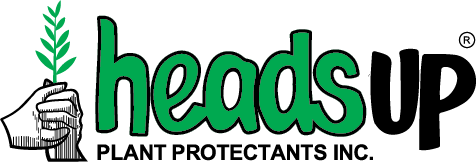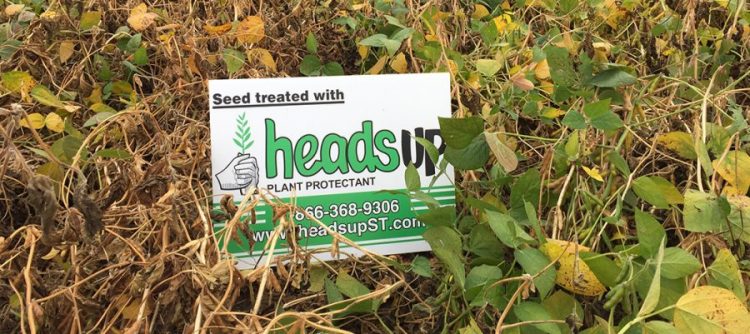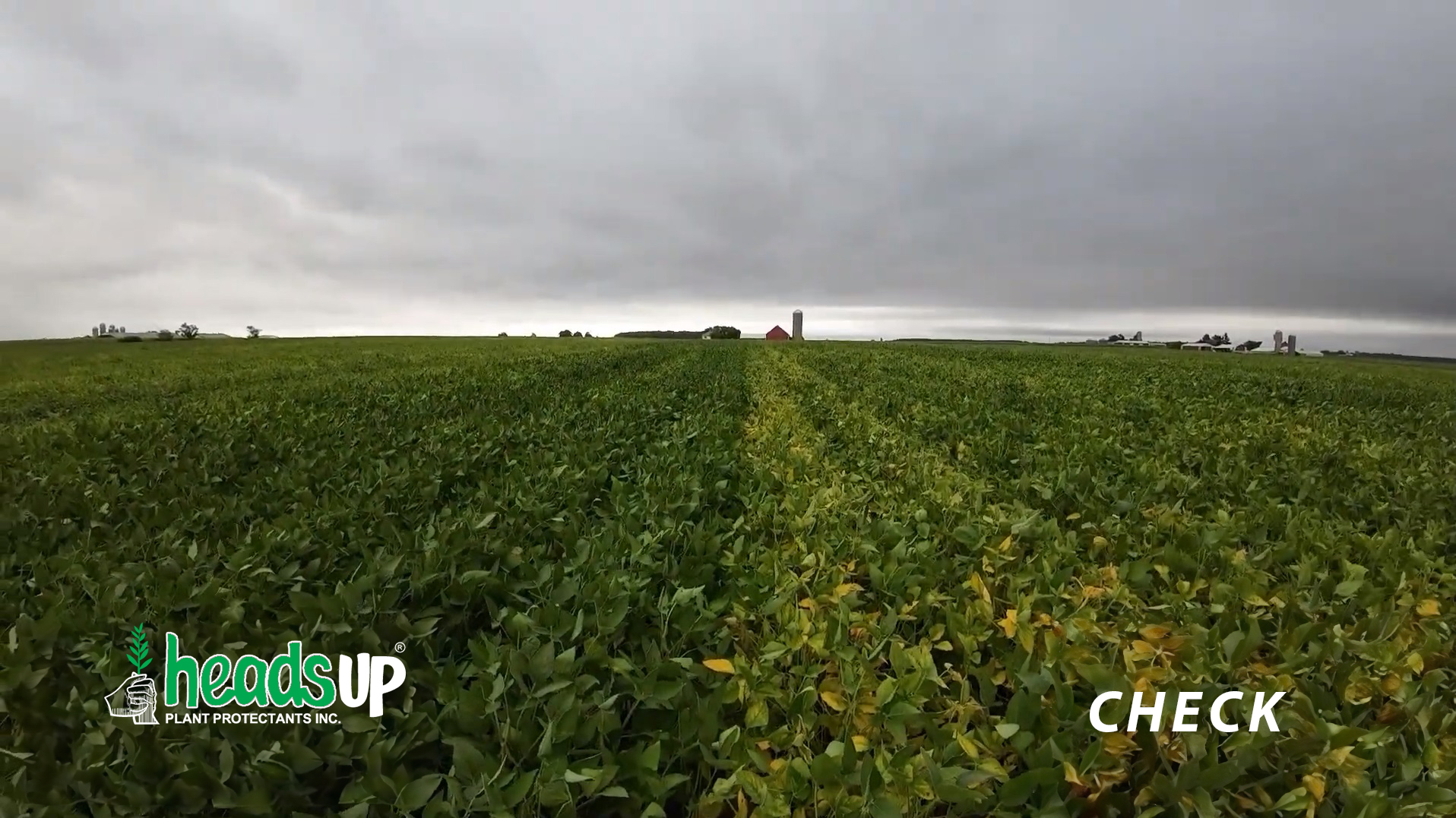“Biological control products are the future for disease management in row crops1” – Dr. X.B. Yang – Principal Investigator – Department of Plant Pathology and Microbiology – ISU
Biological control products, such as seed treatments and soil-applied bio-fungicides, can be a valuable tool in helping you hit your yield targets. However, often these products are associated by farmers and the agriculture industry with the same regard as “snake oils” products, which are either too good to be true, or too cheap to be effective. The reason for the snake oil association, is that the market for biological control products, has always been oversaturated by companies who do not have the farmers best interest at heart. Too often products from unrecognizable and un-reputable companies, sell to farmers on unsound advice, with promises of adding mega bushels per acre and curing disease problems you didn’t even know you had.
As the manufacturer of biological seed treatment products, Heads Up Plant Protectants Inc, which was established in 2003, is well versed and familiar with the negative connotation often associated with biologicals. As a company we also often hear a contrary widely held belief that only high cost, synthetic chemicals manufactured by large, multinationals will get you results. Ultimately, spending top dollar on your products does not mean results guaranteed. When shopping for crop inputs, be sure to figure out your bottom line and what works for your farm, by penciling out the cost to benefits associated with the products you are using.
Regardless of which products you choose here are our tips when selecting a biological control product for your farm:
1. How long has the company been around in the industry? If the company is new, but making bold claims, there is such things as too good to be true. Look for data and grower/industry driven testimonials. Learn as much about the company as possible to verify their track record.
2. Is the data provided performed in house or by a credible third-party source? If the company appears credible, sales people are bound to sell you on data. In our opinion, while in house data may be accurate and should not be discredited, it can also be easily manipulated. Third party data is generally best coming from credible resources such as universities or recognizable, independent researchers. Always read the fine print and ask as many questions as necessary. Look for data as close to home as possible.
3. Is the product registered with the United States Environmental Protection Agency (EPA). The “Federal Insecticide, Fungicide and Rodenticide Act (FIFRA) requires all pesticides sold in the United States to be registered by the EPA.2” Registration is based on scientific efficacy data and ensures a thorough Risk-Assessment of the product has been conducted for human, animal and environmental risks. Companies who uphold EPA registration for their product means as a farmer you have some degree of assurance that relevant information has been provided to the FDA, and after careful evaluation, an assessment was made either to accept or not-accept the manufacturers claims as true. Without EPA registration, think twice about delving into the newest product on the market, as likely there is either not enough credible data or there could be other inherent risks as the product is likely unregulated.
Note* Some products do not require EPA registration. Products such as “fertilizers, growth stimulators, activators, horomones and vitamins require no efficacy testing”4
4. What is the cost? Risk/Reward? Is the product too expensive? Too cheap to work? Keep in mind price of the product does not correlate with efficacy; and every producer will have different results based on their unique variabilities of their farm.
5. Can the company recommend testimonials? While on farm testimonials are great to prove a products merit, when possible be sure to look at other players in the industry who have trialed the product. If a competing product has its sales reps presenting data which goes head to head against the one you are thinking about using, then there is likely some validity to the companies claims that the product works.
6. Most products are worth the try. If the product is not extremely cost prohibitive where it must work for you to achieve a breakeven; and you are not completely adverse to risk; most products are worth trying. When testing a new product, always be sure to leave a check or better yet set up strip trials. As weather, field and soil conditions vary from year to year; do not feel that if a product does not perform one year it is not worthwhile to repeat the trial the following year. A good rule of thumb is to give a product at least two, or even three tries and average the yield data over that period to ensure a proper evaluation. Be sure to either flag, or drop a pin on your mobile device at time of planting, so you can accurately record the corners of the treated/untreated area.
7. Don’t bet the farm! Seed treatments, biological or synthetic, can be an important part of your integrated pest management plan. Don’t assume seed treatments, or any product, is a silver bullet or that they can replace another practice. A good Integrated Pest Management strategy is dynamic and has several components that get re-evaluated based on what works and what does not. Don’t hesitate to try something new, but more importantly don’t put all your eggs in one basket.
Fact Check:
How to accurately evaluate a biological seed treatment:
e.g. Heads Up Plant Protectant
– A biological seed treatment for the prevention of white mold, sds, root rot and damping off.
1. How long has the company been around?
Heads Up® Plant Protectants Inc. was incorporated in 2003 (14+ years)
2. Is the data provided credible?
Data on Heads Up® Plant Protectants website www.headsupst.com; was performed by state universities across the mid west (localized data to your home state is important).
3. Is the product registered with the EPA?
Yes, as a reduced risk bio fungicide, Heads Up® is registered with the EPA.
EPA registration #81853-1.
Heads Up® the only seed treatment with EPA registration for the prevention of white mold (Sclerotinia sclerotiorum) AND SDS (Fusarium virguliforme).
4. Cost?
Heads Up® is an economical seed treatment; priced at less than ½ the price of a bushel of soybeans.
5. Testimonials?
Heads Up® is available across the mid-west from large name distributors such as Albaugh, WinField United, Pulse USA and Unified Ag Solutions.
Additionally, the product is being used by seed companies such as Stine Seeds, in their proprietary seed treatment blend, Stine XP Complete.
Trial data can be found on distributors websites/promotional items.
6. Worth a try?
If you live in the North Central Region, results show that Heads Up® when combined with a commercial seed treatment base added an average 2.08 bu/ac increase in yield over commercial seed treatment alone. Since the product retails at half the cost of a bushel of soybeans, if you farm in this area the average return would be 4:1.
The product is carried by some of the largest distributors in the seed care industry, and is available upon request at your local dealer.
Source:
1North Central Soybean Research Program. NCSRP. http://www.ncsrp.com/pdf_doc/Progress%20Reports%202016/SDS_Yang_March2016.pdf. Accessed November 6, 2017.
2 About Pesticide Registration. EPA. https://www.epa.gov/pesticide-registration/about-pesticide-registration. Accessed November 6, 2017.
3 How to avoid “snake oil” products. Brenda Dawson.
Small farm news. http://ucanr.edu/blogs/blogcore/postdetail.cfm?postnum=7092. Accessed November 6, 2017.
4 How to detect Snake Oil. Jim Downer. University of California Cooperative Extension. http://sfp.ucdavis.edu/files/144822.pdf. Accessed November 6, 2017.


